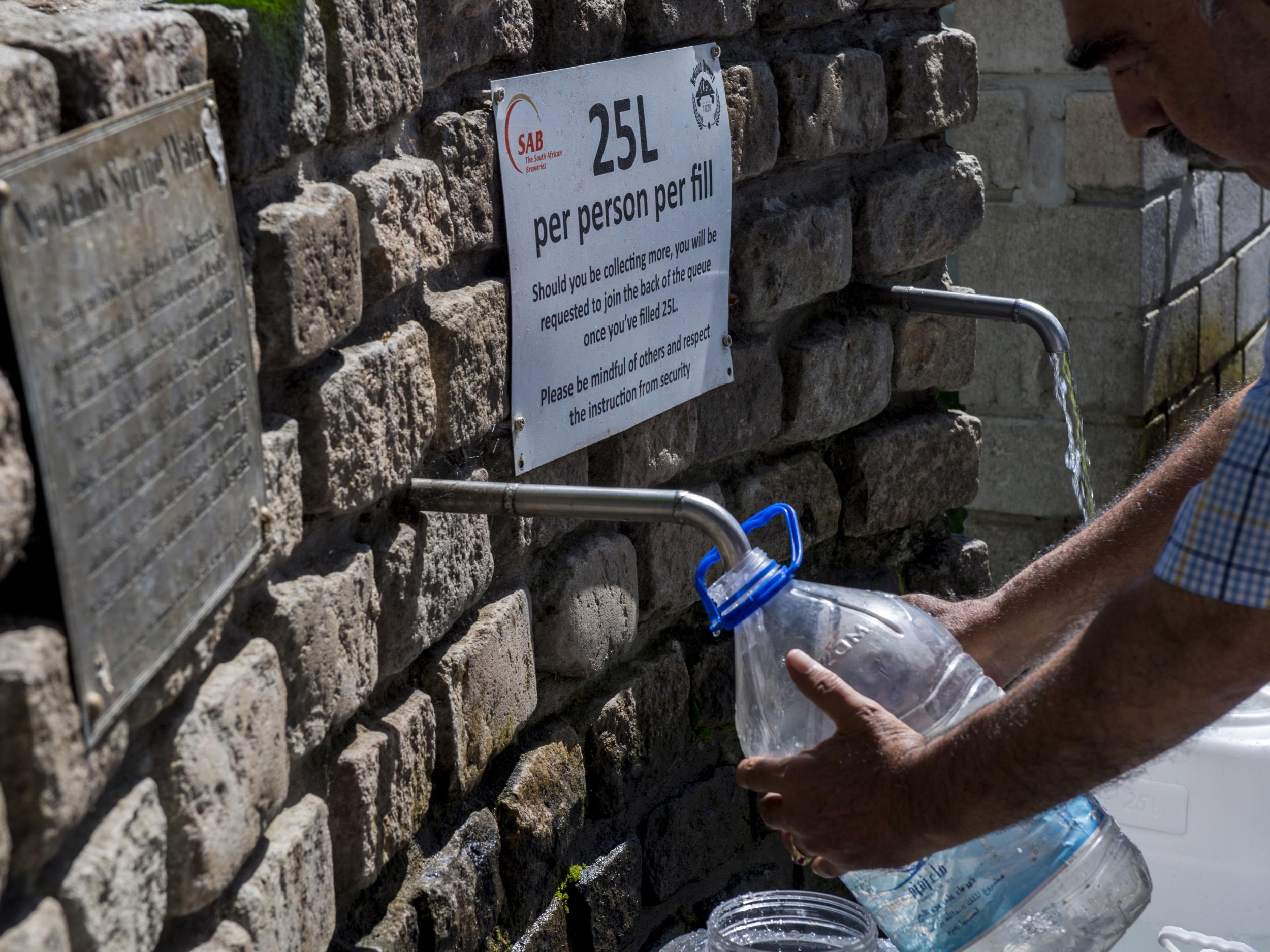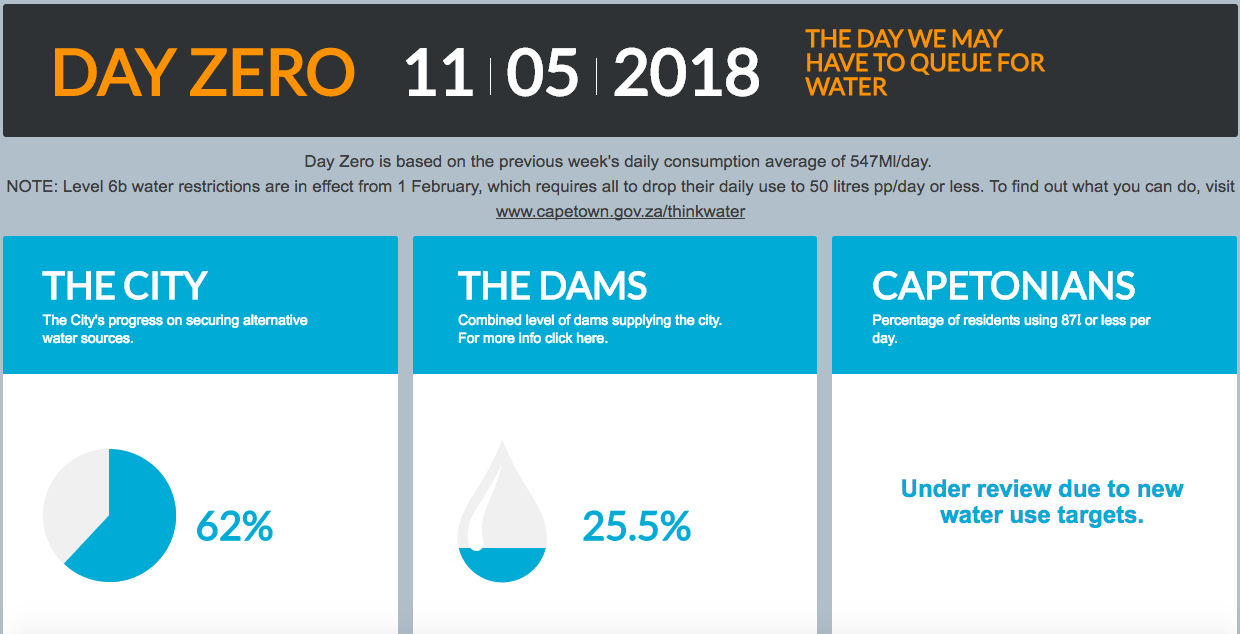Cape Town drought: ‘Day Zero’ projection pushed back to 11 May
Many agricultural users have reached their limits on water consumption

The “catastrophic” day when taps in Cape Town are switched off because of a shortage of water has been moved 25 days later, to 11 May. It was previously set at 21, 12 and 16 April.
The decision is based on projections of a sharp drop in agricultural use in March and April.
Day Zero is the day when the aggregate level on reservoirs (known locally as “dams”) drops to 13.5 per cent. At present it stands at 25.5 per cent, a drop of 0.8 per cent in the past week. Hot weather forecast for the coming week is expected to accelerate the decline.
But the city said that many agricultural users in the Western Cape Supply System have used up the water allocated to them, and therefore consumption is likely to fall sharply.
At present agriculture uses about 30 per cent of the water supply; the proportion is expected to drop to 15 per cent in March and 10 per cent in April.
Cape Town’s executive deputy mayor, Ian Neilson, said: “There has not been any significant decline in urban usage.
“All Capetonians must therefore continue to use no more than 50 litres per person per day to help stretch our dwindling supplies.
“All preparations for the possibility of reaching Day Zero continue in earnest.”

If and when Day Zero arrives, most taps will be shut off so that the last available water can be conserved for essential uses. Residents will need to queue at 200 standpipes to fill containers.
The city authorities say the need to collect water “will be a massive inconvenience for Capetonians”, and warn: “The impact of Day Zero on the economy of Cape Town will be catastrophic.”
The Foreign Office is warning British travellers: “If you’re planning to travel to the area, you should be mindful of water consumption and comply with local restrictions.”
Join our commenting forum
Join thought-provoking conversations, follow other Independent readers and see their replies
Comments
Bookmark popover
Removed from bookmarks